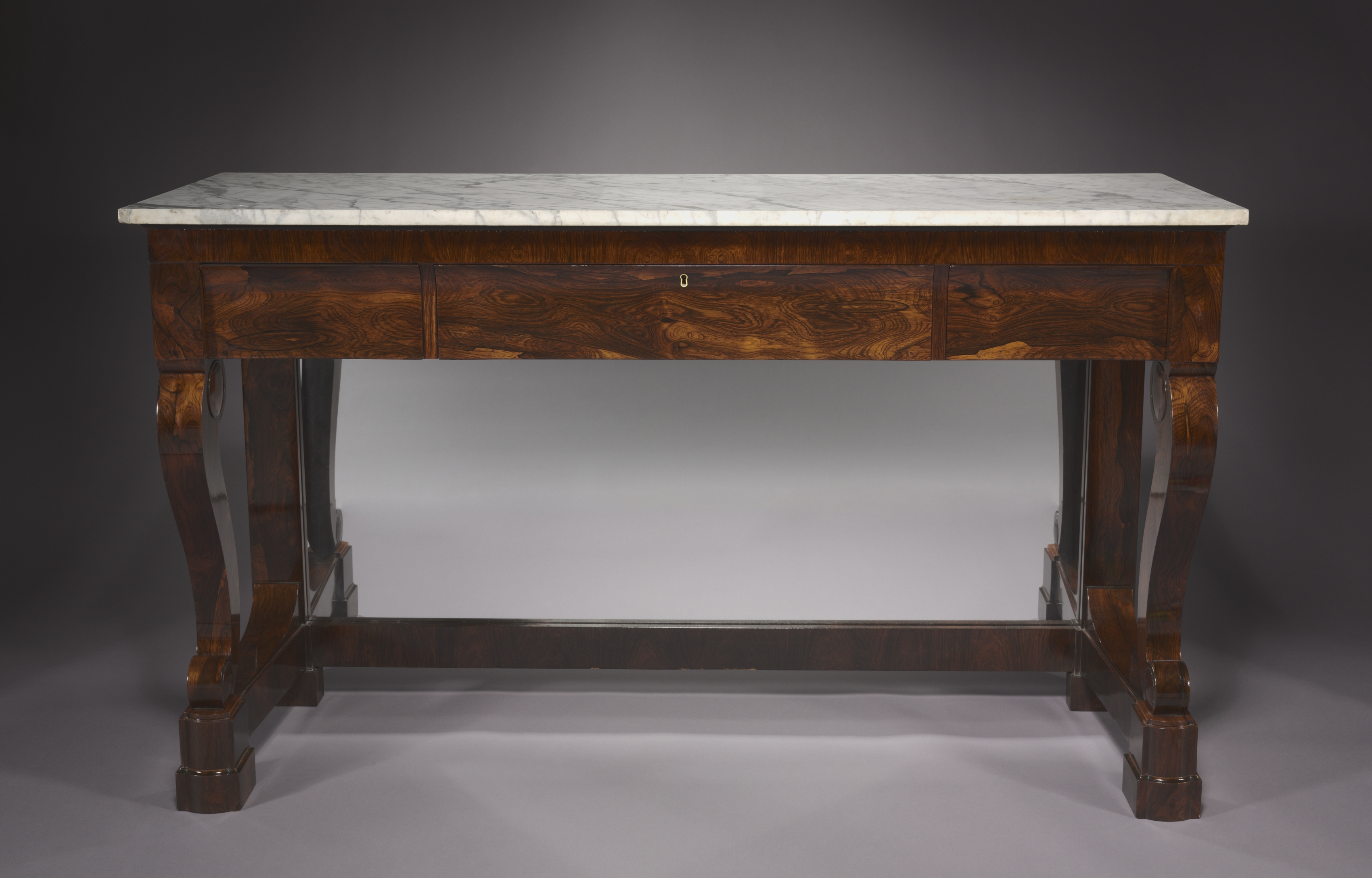The Cleveland Museum of Art
Collection Online as of April 26, 2024

Sideboard
c. 1840
firm of Duncan Phyfe and Son
(American, 1768–1854)
Overall: 99 x 168.9 x 59.7 cm (39 x 66 1/2 x 23 1/2 in.)
John L. Severance Fund 2000.72.1
Location: 205 Federal American
Did You Know?
This sideboard and cellarette would have graced a 19th-century room. Notice the keyholes on the drawers of both pieces. Expensive silver utensils were stored in the sideboard and wine was kept under lock and key in the cellarette.Description
Easily the most famous American furniture maker, Duncan Phyfe (born Scotland, 1768-1854) gave his name to New York furniture that is similar to English Sheraton pieces of the early 19th century-characterized by simple designs, straight lines, thin legs, and classical ornamentation. Despite the fashionable success enjoyed by his work, Phyfe responded to stylistic changes, and by the 1830s had evolved a more severe mode that has been termed the "Grecian plain style." This sideboard and its cellarette (a cabinet for storing wine or liquor) are superb examples of that taste, relying for their effect on relatively simple structural forms with ornamentation largely limited to the use of boldly patterned rosewood veneers.- (Hirschl & Adler Galleries, Inc., NY)
- {{cite web|title=Sideboard|url=false|author=Duncan Phyfe and Son|year=c. 1840|access-date=26 April 2024|publisher=Cleveland Museum of Art}}
Source URL:
https://www.clevelandart.org/art/2000.72.1